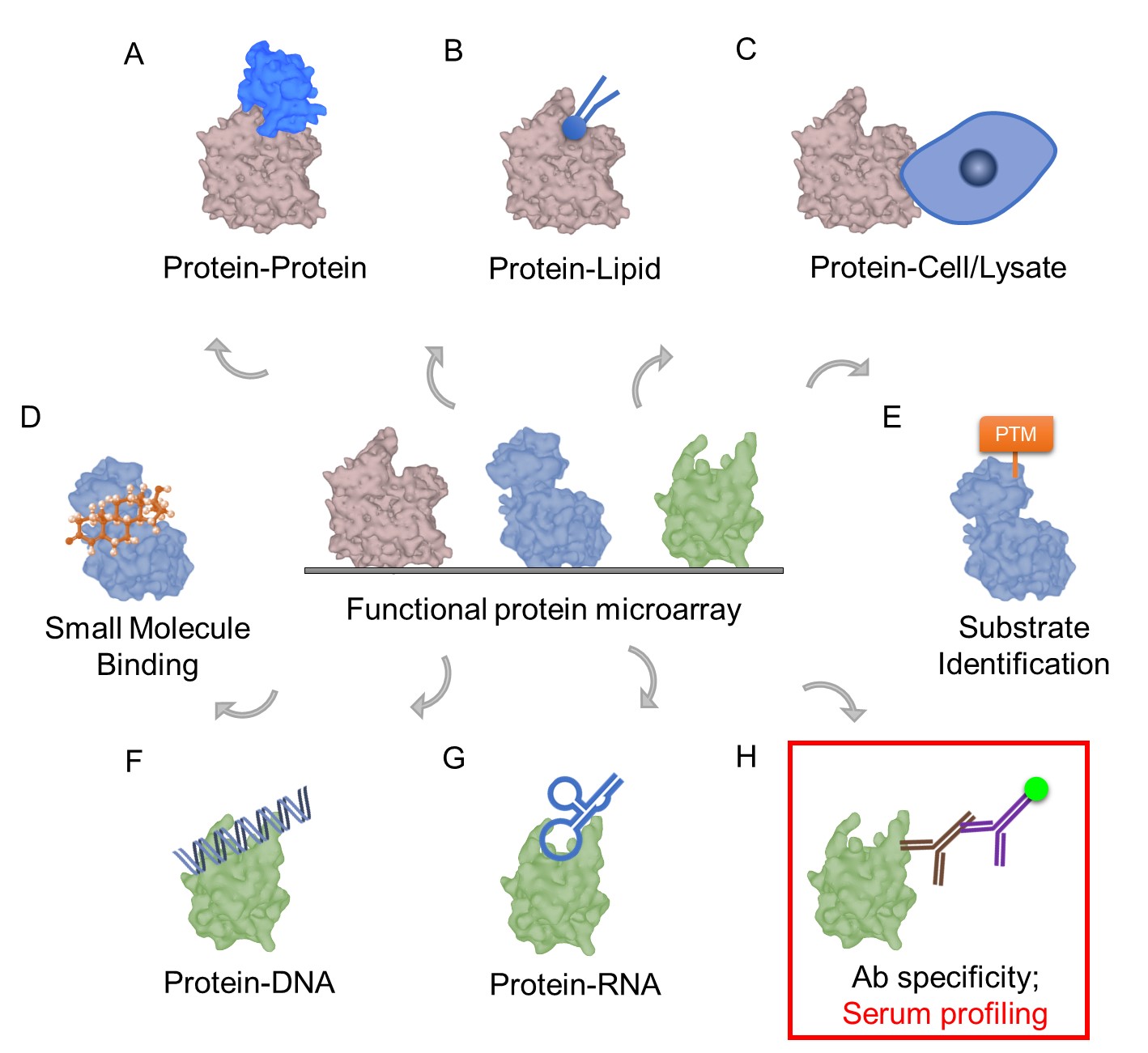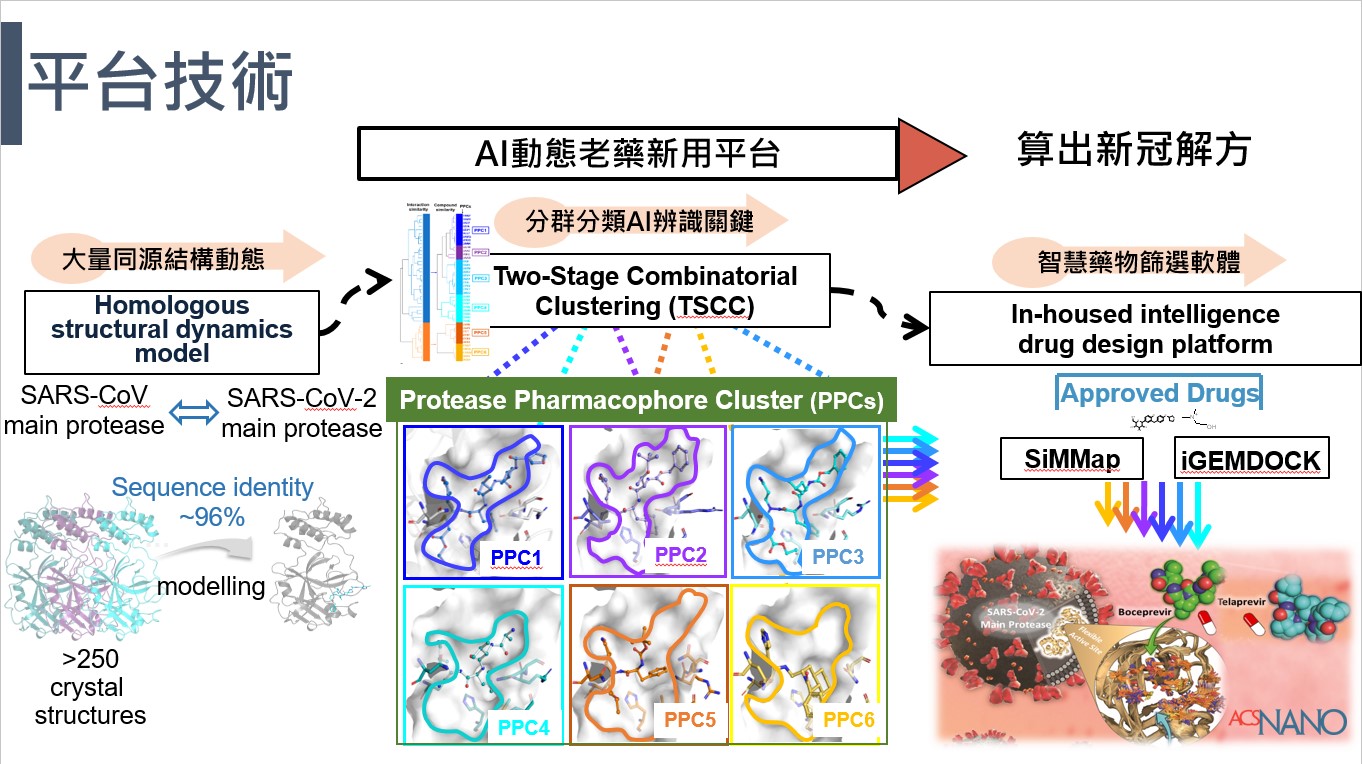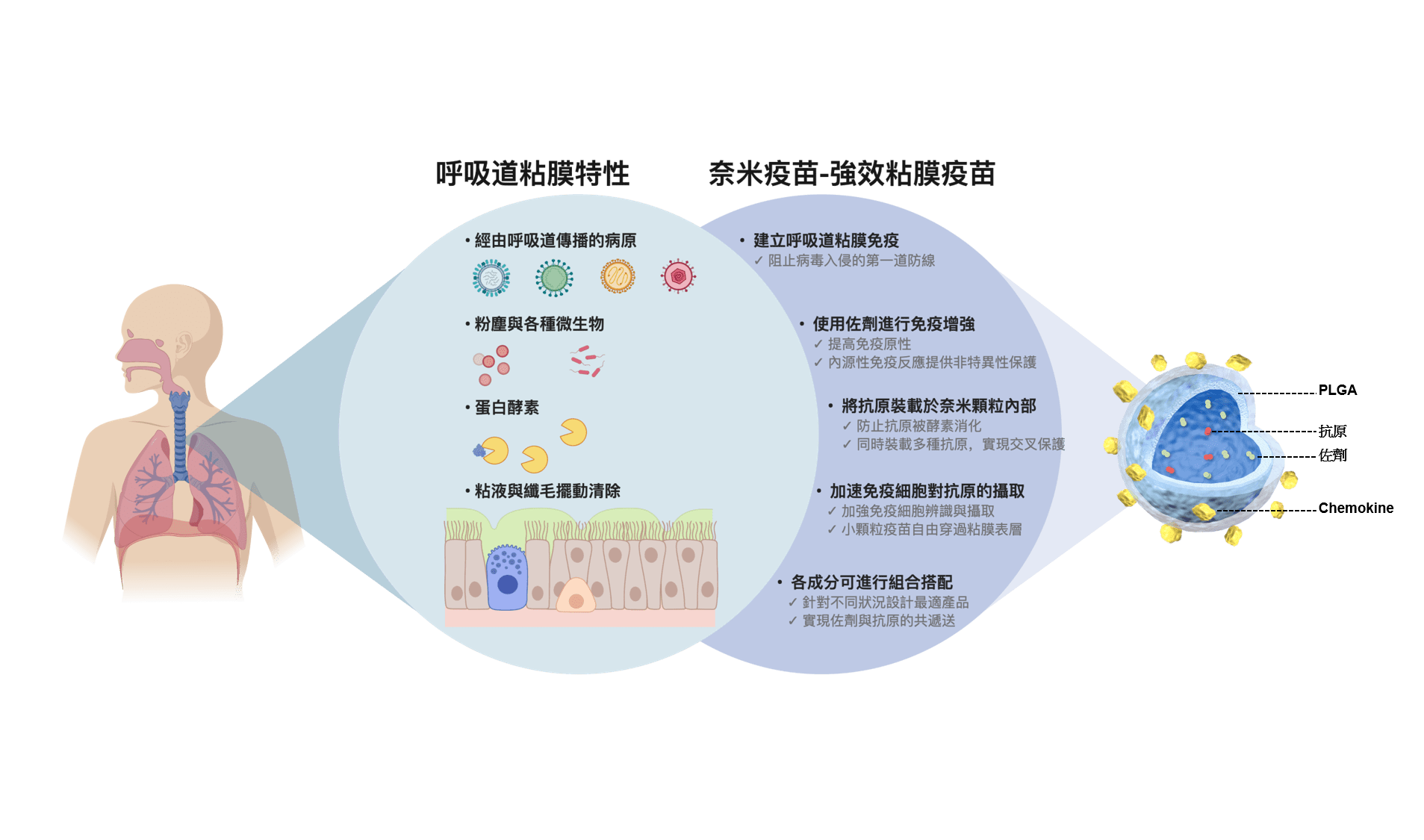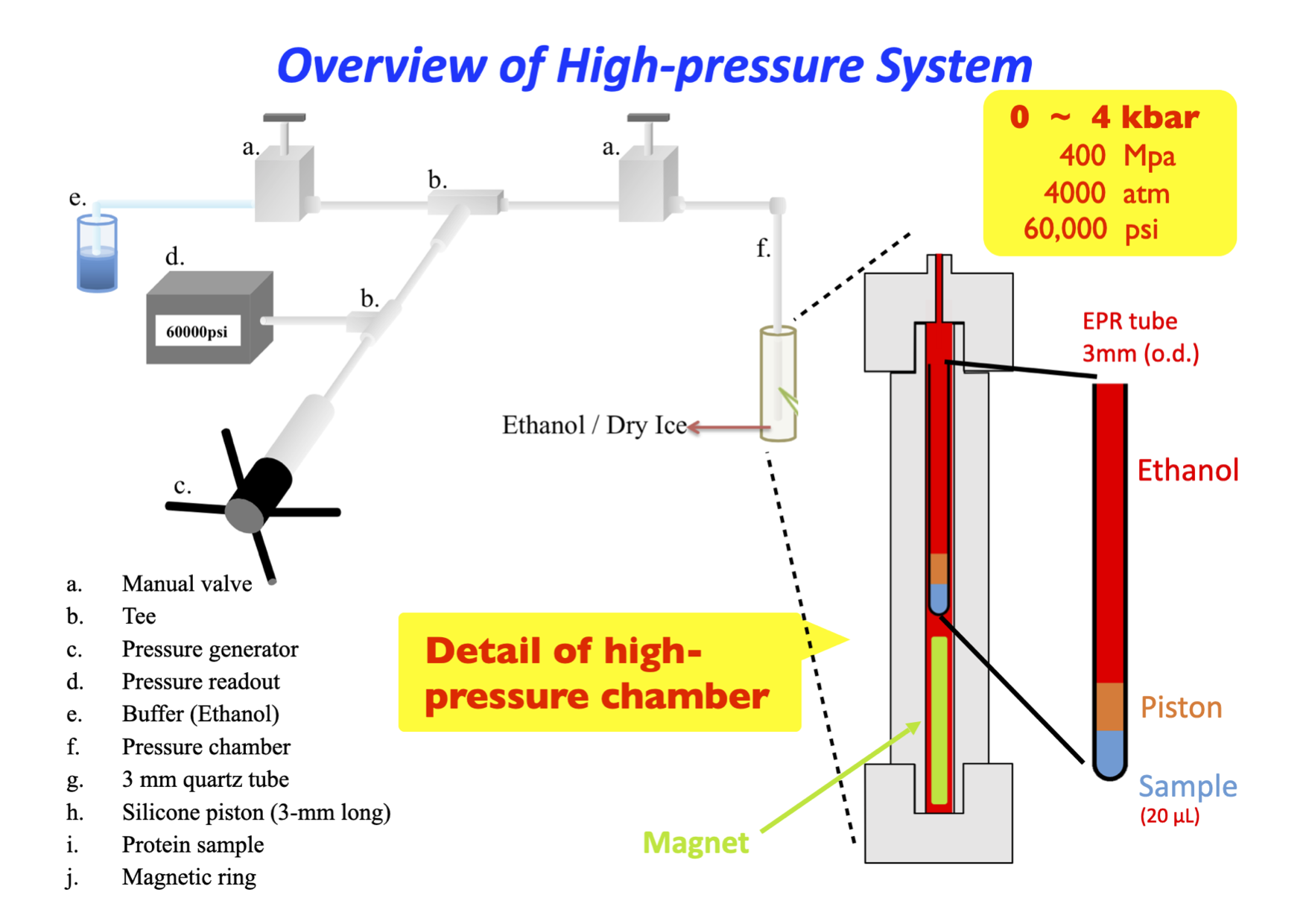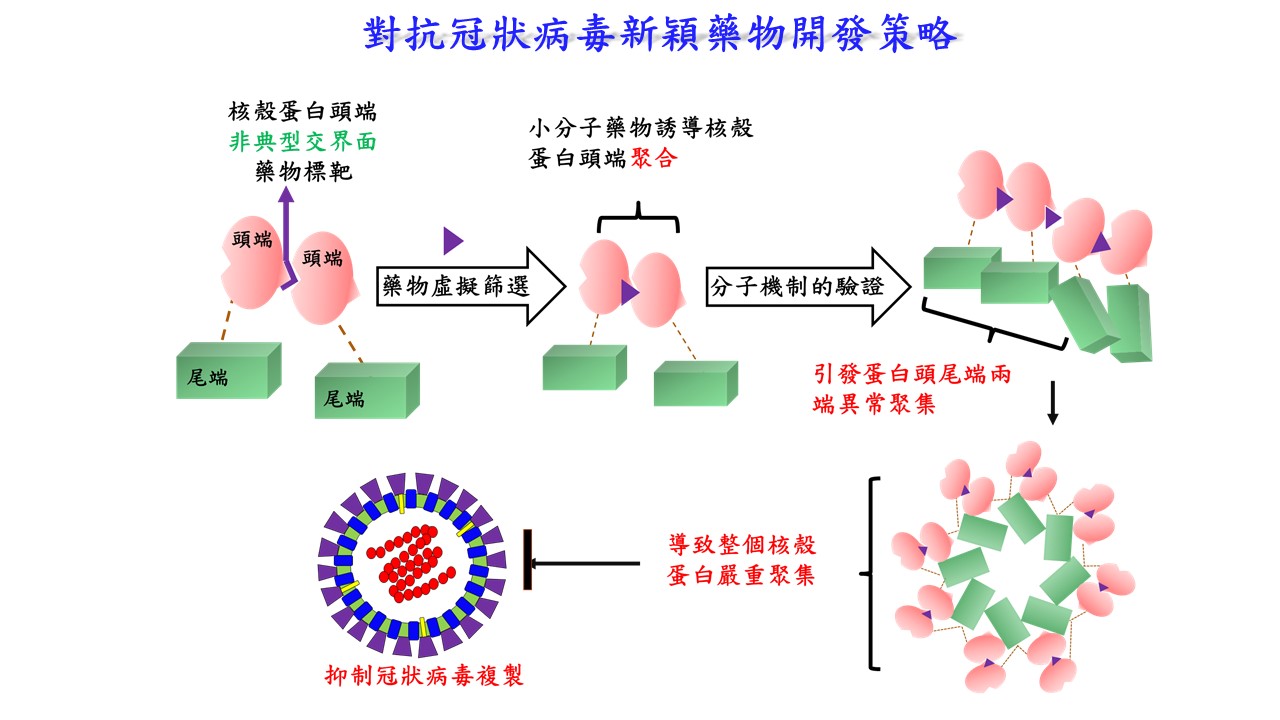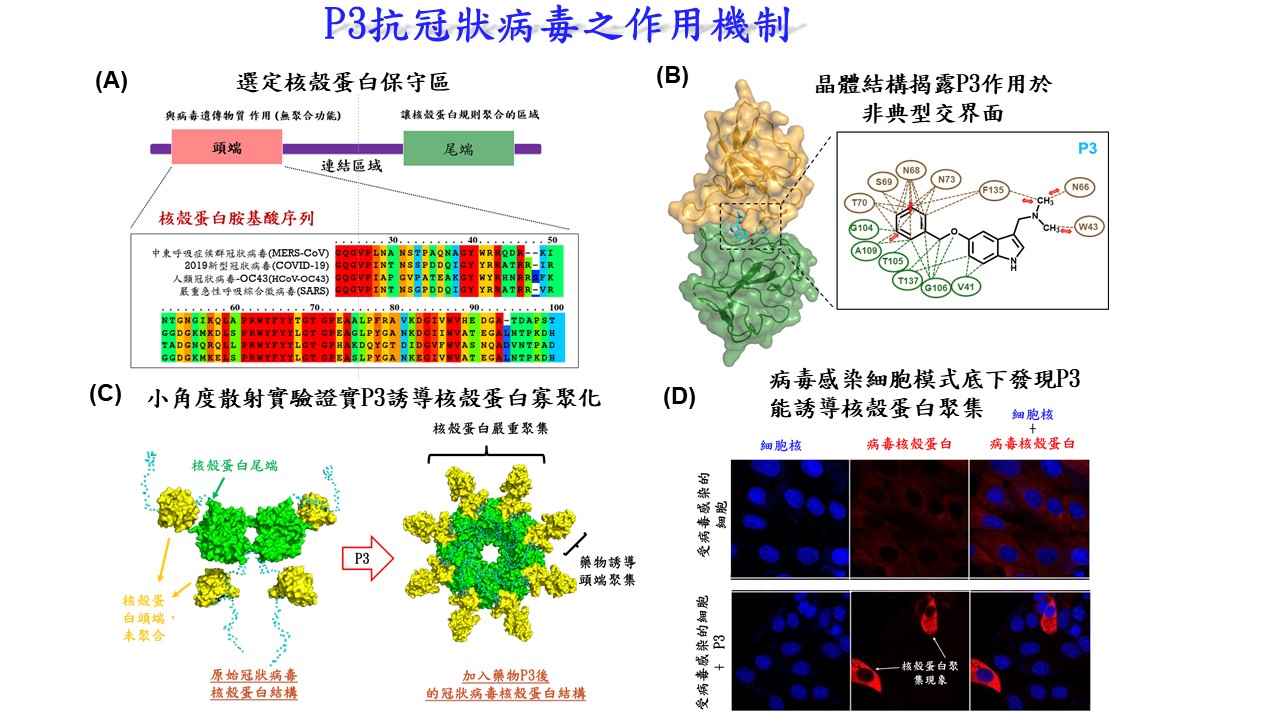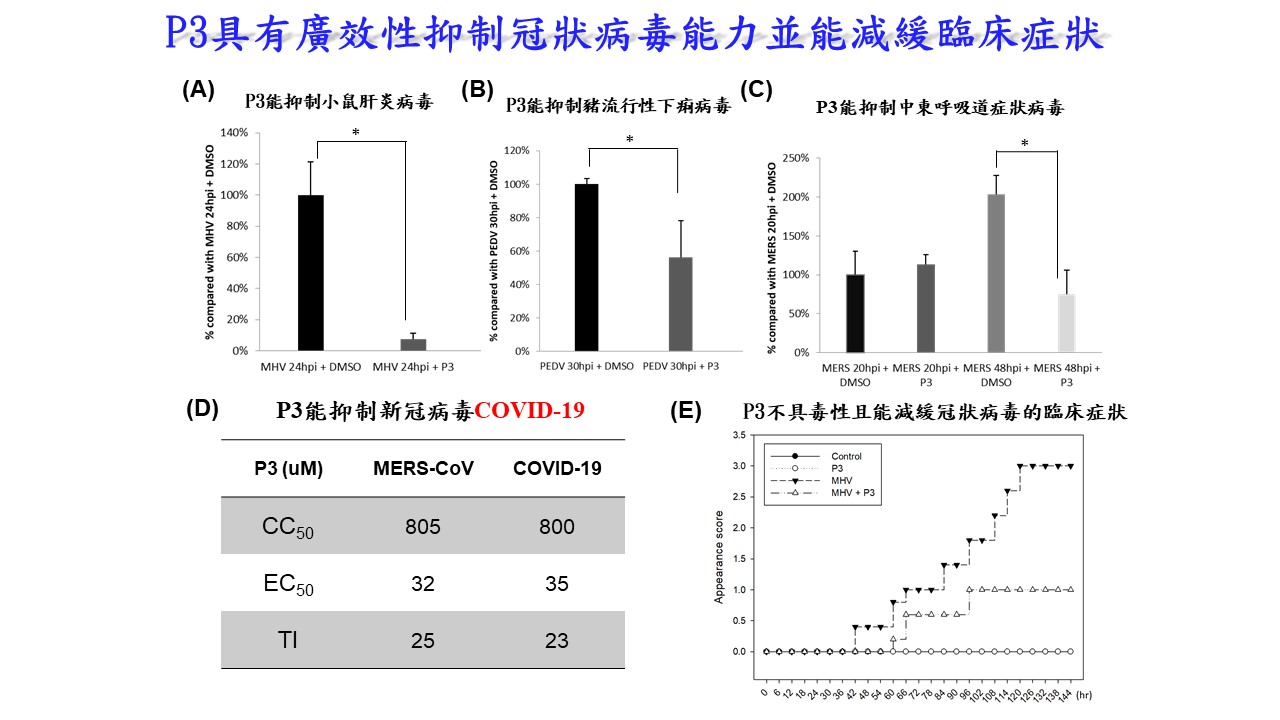| Technical Name | Anti-viral drug development targeting the non-native PPI interfaces of coronavirus nucleocapsid proteins | ||
|---|---|---|---|
| Project Operator | National Chung Hsing University | ||
| Project Host | 侯明宏 | ||
| Summary | Small-molecule stabilization of protein-protein interactions (PPIs) is a promising strategy in drug discovery. However, this approach has mainly focused on the stabilization of native PPIs, and non-native PPIs have received little consideration. Recently, a closely related novel coronavirus, COVID-19, caused an outbreak of pneumonia in the world. Here, we used the non-native dimer interface of the N-terminal domain (NTD) of N protein as the target in virtual screening for an orthosteric stabilizer. We found that a lead compound, P3, had both antiviral and stabilizing activities on the N protein. Our results showed that P3 induces abnormal full-length N protein oligomerization in vitro and at the cell level. We also found that this conservation site may provide certain advantages when developing compounds with broad-spectrum activity against most CoVs, including COVID-19. It has been found that this compound can slow down the clinical symptoms caused by a coronavirus in animal models. |
||
| Scientific Breakthrough | The use of small molecules to stabilize PPI interfaces is a viable approach for the development of new therapeutics. Most compounds created by structure-based design to manipulate the PPI depend on detailed knowledge of the native interacting interfaces. In contrast, most of the compounds with therapeutic potential that stabilize non-native PPI interfaces were discovered by chance alone. This technology is the first to use the "non-native PPI interfaces " to establish a set of potential new drug development strategies. Through the procedure to target the non-native PPI interfaces of the coronavirus nucleocapsid protein, we have successfully developed a potential antiviral lead compound, P3, with broad-spectrum activity. |
||
| Industrial Applicability | Drug development has an annual market size of hundreds of billions. This technology targeting the non-native interaction interface successfully introduced the world's novel drug design concept into the development of antiviral drugs. Besides, the lead compound, P3, was developed through this technology has broad-spectrum anti-coronavirus activity with low side effects. Otherwise, our structural information can provide the new direction for further drug optimization. It is expected to enter the market at the fastest speed as an essential treatment against new coronavirus with huge commercial value. |
||
| Keyword | COVID-19 broad-spectrum antiviral drug drug development strategy non-native protein-protein interaction nucleocapsid protein structural biology virtual screening X-ray crystallography SAXS abnormal aggregation | ||
- mhho@dragon.nchu.edu.tw
other people also saw

